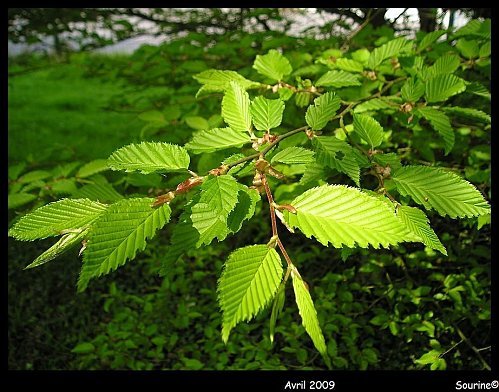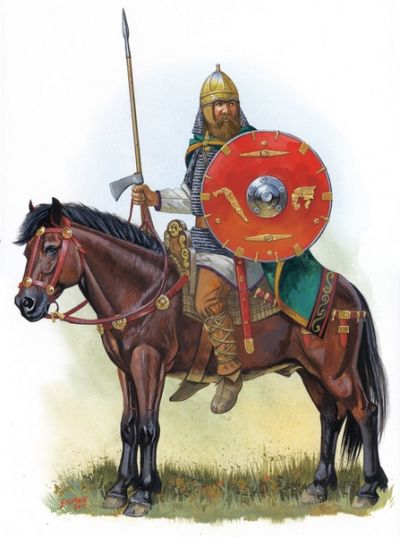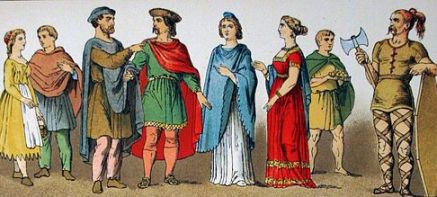posted by Simon Kemp
In previous posts we’ve looked at two of the ancient roots of the French language in other tongues: firstly the Gaulish language of some of the earliest inhabitants of France, and secondly the two waves of Latin brought by the Roman invaders initially, and revived in the early middle ages by the scholars of the Carolingian renaissance. Our third and final French root comes deep in the dark ages, fitting in between the first and second influxes of Latin. This time, we have the people who gave their name to the country, and to the language itself. We’re talking about the Franks.
The Franks were a Germanic people who invaded and occupied much of what is present-day France in the fifth century, filling the power vacuum left by the fall of the Roman empire. They spoke a language related to modern German, and this was to leave a strong imprint on the evolution of French.
They brought with them many words relating to combat and chivalry, including those that would become in modern French l’éperon (spur), l’étrier (stirrup), la guerre (war), la hache (axe), la honte (shame), gagner (win) and haïr (hate). There were also many words relating to farming, country life and the natural world, including those that would become le blé (wheat), la framboise (raspberry), le jardin (garden), le héron (heron), la houille (coal), as well as the trees le hêtre (beech) and le houx (holly).
These are only a tiny selection of the more than four hundred words of Frankish origin which are in common use in modern French. Did you notice anything odd about the ones I picked? In French, as you know, an initial letter ‘h’ is usually treated as if it wasn’t there at all, so the ‘le’ of ‘l’homme’ is elided just as if the word began with a vowel. However, as you also know, there is a small number of words in which, without actually pronouncing it, we treat the ‘h’ as a consonant, and thus get constructions like ‘la haie’ (hedge). Or like la hache, la honte, le héron, la houille, le hêtre and le houx. As it turns out, most of these kinds of words have a Frankish origin, coming as they do from a Germanic language which was very good at pronouncing its h’s. L’homme and the pretend-it’s-not-there h-words mostly have a Latin origin*, and le houx and the act-as-if-we’re-pronouncing-it-even-though-we’re-not h-words have a Germanic origin.
In French there are lots of h-words like l’homme and not many like la haie, reflecting the relative importance of Latin and Germanic languages on the development of French. Here in English, as you may have noticed, we have a lot of h-words where we pronounce the first letter (head, hair, hand, hold…), and a much smaller number where we don’t (heir, honour, hour, honest…). Funnily enough, the reason is the same. The first lot are Germanic in origin, brought over by the Anglo-Saxon invaders; the second are Franco-Latin, introduced in the Norman conquest. Since we English-speakers speak a language that is basically Germanic with a smattering of Romance (French and Latin) influence, we pronounce the first letter of most of our h-words. Since French is fundamentally a Latin-based language with a smattering of Germanic influence, they do it the other way around.
All of which is a nice way to remember why beech trees and holly trees in French have an ‘aspirate “h”‘ when you say their names. It’s because they’re a bit German, and the Germans know how to pronounce a letter ‘h’ when they see one.
 * (Yes, it’s true that Latin has h-words that the Romans probably used to pronounce, but somewhere along the road leading from Latin to French, the h’s dropped out of spoken use.)
* (Yes, it’s true that Latin has h-words that the Romans probably used to pronounce, but somewhere along the road leading from Latin to French, the h’s dropped out of spoken use.)


